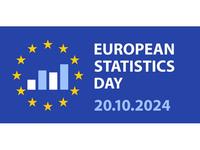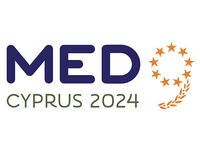Press Releases

31-03-2024 10:35
Address by the Deputy Minister for European Affairs, Mrs Marilena Raouna, at the Discussion Forum of the European Youth Parliament (EYP) Cyprus
I am delighted and honored for the opportunity to join this energetic young forum, this exceptional platform for exchange of perspectives at such an important time for European democracy, ahead of the upcoming European elections.
First and foremost, I wish to express my appreciation to the European Youth Parliament (EYP), to Andreas and all members, for offering me the opportunity to address today’s Discussion Forum on “Youth in Democracy”. Thank you for the invaluable commitment and work of EYP Cyprus in promoting civic engagement and youth democratic participation, in fostering understanding, pluralism, intercultural exchanges and collaboration through dialogue. Those are all core characteristics of the European Union (EU) and if I may so, never have they been more important.
You should be proud of the work you do. Each and every one of you. I had the opportunity to meet a number of your members, and I have been truly impressed and inspired by your enthusiasm and dedication to European ideals and values, to the European project. To our common home whose foundations are rule of law, democracy, fundamental rights.
The EYP is amongst the largest youth forums that work towards the fulfilment of these fundamental principles, serving a vital mission; that of inspiring and empowering the young generation to be well-informed, broad-minded, responsible and active citizens.
Since its foundation in 2006, the EYP Cyprus has succeeded in establishing the Annual National Conferences with hundreds of participants from both Cyprus and other European countries, as well as numerous other events. The EYP broad representation in 40 countries across Europe over the past 35 years has been active and is key in terms of outreach. Equally important is the fact that it operates under the patronage of the President of the European Commission and the President of the European Parliament.
In empowering our youth, we empower democracy itself. Our youth are the driving force of a functioning democracy and their civic engagement is not just a right; it is above all a duty. A solemn duty to become agents of change and take ownership of the future we all want for the young generations to come, the generations of our children and beyond to inherit.
Young people represent 25 percent of Europe's population. The EU has long been committed to investing in the limitless potential of its youth, recognising the pivotal role young people can play in shaping the future of our continent. At the heart of the EU’s efforts lie education, mobility and skills development, as well as initiatives that seek to enhance youth participation in democratic processes, the promotion of entrepreneurship, innovation and employment opportunities as well as tackling challenges, such as unemployment and social exclusion as well as mental health issues and digital illiteracy.
We can reflect on several manifestations of the EU’s commitment in this respect. We can remind ourselves of the Conference on the Future of Europe, which was considered a truly innovative exercise of participatory democracy at EU and national level. European citizens were actively invited to participate and voice their views towards shaping a common future in Europe. In an effort to “focus on the specific needs of young people across all relevant policies”, the Conference proposed a set of measures. These touched on increased youth participation in the democratic and decision-making processes at all levels, development of a EU 'Youth Test', so that all new legislation and policy is subject to a youth-focused impact assessment, and measures related to youth and European elections. Responding to the call, Cyprus also placed youth at the heart of its discussions at the time.
The Government and President Christodoulides himself personally are deeply committed to promoting youth rights. In fact, the governance program includes a distinct pillar dedicated to the young generation, aimed at empowering youth, safeguarding youth rights and freedoms, providing the young generation with more opportunities and promoting young people’s role in consultation processes and in the decision-making bodies actively and effectively.
In this regard, several initiatives are underway by the Government. As I am certain you are well aware, the current year has been declared as the National Year of Youth, with all Ministries actively promoting actions in favour of young people, with a view to boost their civic participation. Examples of action towards achieving this goal include reinforcing the channels of communication with citizens through a dedicated digital tool for non-binding referenda, as well as a specific platform specifically addressed to youth. Furthermore, during the current year, the Government intends to submit a bill to the House of Representatives proposing to reduce the minimum voting age from 18 to 17.
As we approach the upcoming European elections, it is crucial to underscore the imperative of youth participation in shaping the future of the EU. The European Parliament elections represent a crucial moment in EU democracy, in which citizens will have the opportunity to influence the trajectory of the Union. Driven by the surge of youth participation, the electoral turnout in the previous (2019) European elections was the highest in 20 years, reaching an unprecedented 50.6%. Amidst remarkable geopolitical challenges as well as increasing Euroscepticism, we have a responsibility to maintain and even increase this trend. We cannot afford to do otherwise; young people’s voices are essential in shaping a Europe that is inclusive, responsive and forward thinking. The visit of the President of the European Parliament in Cyprus tomorrow ties perfectly with your discussions today, which the President of the European Parliament will continue during her visit.
In this regard, the Government has adopted targeted measures, aiming to maintain and expand the increasing trend of voter participation, especially of young people, in the upcoming elections. For the first time, Cyprus is holding the local Municipal and Community elections, which are elections with high participation rates, on the same day as the European Elections. The Government has also made use of technology to allow online registration in the electoral roll specifically for young people aged 18-25. It has also further strengthened the participation of Turkish Cypriot voters through information campaigns, encouraging registration in electoral rolls and participation. Additionally, the Government has updated the website dedicated to elections and has sent personal letters to citizens informing them of their electoral rights and the procedures for registration in the electoral rolls.
Our vote, your vote matters. Exercising the democratic right to vote gives the right of choice as to how our common European future is shaped, as well as the right to be effectively represented in policy-making processes. It also gives a sense of ownership of the decisions taken at EU level, providing, at the same time, democratic legitimacy to the EU, which is called upon to act in the best interests of EU citizens. In strengthening our efforts, we need to keep in mind that the EU, despite the serious challenges it has been facing in recent years, is a project that delivers. It is also a peace-project and one that continues to inspire countries on the European continent and beyond, largely because it has proven that it heals historical divisions and wounds and that it is transformative. This is especially important for us, Cypriots, striving to reunify our country, the last divided member state of the EU. Let us not forget that the year 2024 marks the 50th anniversary since the 1974 Turkish invasion and the ongoing military occupation of 37% of its territory. The Union can and must play a catalytic role in reunifying its last divided EU member state.
The current year marks another historic milestone; Cyprus’ most important achievement since its independence in 1960; the 20th anniversary of its accession to the EU. The fifth enlargement of May 2004 constitutes a historic moment of further EU integration both for the 10 countries that joined the EU, but also for the EU, as a political project, itself. EU membership means political stability, respect of democracy, the rule of law and human rights, trade via access to the single market, more funding and opportunities for investment, but also higher social, environmental and consumer standards. It also means – and this is especially significant for you – freedom for all its citizens to live, study and work anywhere in the EU, in conditions of peace, security and enriching diversity in all its forms.
In the context of its EU membership, Cyprus will be assuming in the first half of 2026, for the second time since its accession, the rotating presidency of the Council of the European Union, following a successful presidency assumed in 2012. During the six months of our Presidency, Cyprus, acting as an honest broker, will be responsible for driving forward the Council's work and in doing so, advancing the European project. Cyprus will be planning and chairing meetings in the Council and its preparatory bodies, and will be representing the Council and all its member states in its relations with the other EU institutions.
In the capacity entrusted in me by President Christodoulides, as Deputy Minister for European Affairs, I am tasked with the overall political supervision and coordination, in cooperation with all line Ministers, of the preparation and implementation of Cyprus’ Presidency. We have established the Secretariat of the Cyprus Presidency and have already started working closely with the two Presidencies that will precede our own, Poland and Denmark, for the preparation of the "Trio Program". Based on this, Cyprus will prepare its own more detailed six-month program, which will be presented shortly before the start of our own Presidency. We are still in discussions, but I can tell you that the Trio intends to focus and continue work on current topics, fundamental to the EU and its citizens. To name a few: competitiveness, green and digital transition, the role of the EU as a "global actor" with a focus also on the Southern Neighbourhood and the Gulf countries, migration, as well as social issues with a focus also on young people.
The Cyprus Presidency of 2026 is an immense challenge, but, at the same time, an even greater opportunity for Cyprus, for all Cypriots. In 2012, we assumed the Presidency as a relatively young member state. Twenty years later, we have the experience, the expertise, and with the power of the capable human power that I know that Cyprus and the Cyprus civil service have, with the power of all of you, I am confident that we will have an impactful Presidency that will advance the European agenda and the European project. A core element of our work in outlining the Cyprus programme and priorities will be a consultation process with NGOs, civil society and other key stakeholders.
The power of the Cyprus Presidency will be its people.
I am fully aware that, within the context of the EU’s democratic processes via which decisions are taken and policies are made, there are weaknesses and flaws. The EU is not a perfect project, but it is an evolutionary one. That is how the European visionaries that set the Union’s foundations envisioned it. Our responsibility is to advance this remarkable political project, the most successful integration and peace project in history in my opinion. The Union currently is undergoing an internal process of reflection, on how we build a more resilient, more competitive, more geostrategic and autonomous Europe that is more effective and more relevant, internally for its citizens and externally in the world. We cannot succeed in this process without youth at the forefront. Our responsibility as politicians, as governments in this evolutionary process is to reflect and bring to Brussels citizens' concerns and to also bring Brussels closer to its citizens, from Nicosia to Helsinki, from Riga to Valetta. In this regard, our work is complementary to yours. I would, thus, like to thank you for the work you do, for your active engagement. Your voice strengthens in a meaningful and substantial way the EU’s (and Cyprus’) voice.
Congratulations once again to the EYP, to each and every one of you for offering this platform that is committed to EU values and to strengthening the voice of young Cypriots. Your work and your voice make a difference and inspire us in our work.
The future is in yours. We are here to encourage and support you in every way we can.
(RM/GS/NGian)
Relevant Press Releases






